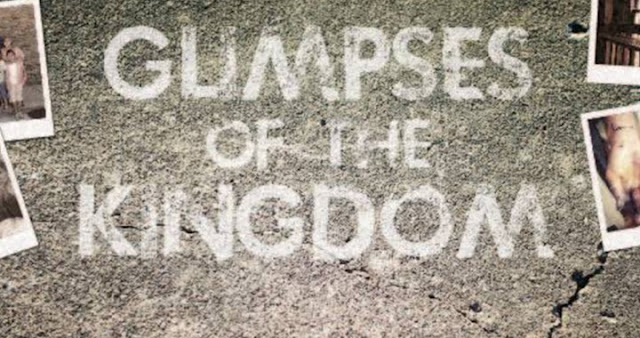Digging and Buying
This is the sermon I will be preaching at St. Timothy Lutheran Church's Drive-In Worship. If you're in the area, join us at 3748 Route 430, Bemus Point, NY. The scripture text is Matthew 13:44-46.
Jesus isn't satisfied with only one parable of the kingdom. He tells five stories in today’s gospel lesson. God gives us five ways to imagine the kingdom of heaven (God’s will being done on earth as it is in heaven). We have two parables of growth: the mustard seed and the leaven, and two parables of discovery: the hidden treasure and the valuable pearl. Then we have one about sorting the good from the bad, a parable of judgment. We will look at the two parables of discovery.
I see two different scenes as I read the parable of the buried treasure. The first is how we see in the movies people who kept money in their mattresses rather than trusting it to the banks. Secondly, I think of looking on a map of buried treasure where “X” marks the spot. Can’t you just hear the “Argh” of a pirate?
Which brings us to the parable of the buried treasure, the first of two parables of discovery This story is one loaded sentence. The kingdom of heaven, living in relationship with Jesus and his people, is so precious, so valuable that the one working in the field sells everything to obtain the field containing the treasure. What would cause him to do that?
We don’t know anything about this person. We may assume he isn't wealthy since he was doing the work himself, not having a hired hand do it for him. Even so, he sells all he has to buy the field to have that treasure.
Then Jesus tells the story of a pearl merchant, shopping for pearls. He finds one that was so valuable, he too sold all that he had to purchase it. He was likely much wealthier than the one working the field, but both gave all they had to obtain the treasure and the pearl.
The two parables are similar: the character finds something valuable, sells all he has, and purchases that thing. Both characters find the prize accidentally. They could not have imagined having such good fortune! Have you ever found anything or any person like that, perhaps the love of your life that you would give anything for?
There are also differences between these parables. Great joy is emphasized in the treasure parable but is missing from the parable of the pearl. Joy is not the main point of either one. What the merchant did was legal, what the plowman did was sketchy at best.
Why does Jesus use so many different stories to teach his disciples (and us) about the kingdom of God? He does not use a cookie-cutter approach because we are not all the same. What moves one person's heart leaves another cold and questioning. What is a puzzle to one, makes perfect sense to another and reaches them.
The issue is God’s reign. God is so vast, that one simile, one story cannot sum up the height or depth of who our God is and what it means to live in God’s reign. In all of this vastness, God cares enough that we know and love him, so he reaches out to us in many ways—through friends, strangers, the written word, music, and art and the list goes on and on. He reaches out to us in Christ, when he made us his own in the waters of baptism.
God cares so very much about the world and wants a love relationship with us that spills over into the people whose lives we touch. It’s like a pebble hitting a pool of water, stretching out further and further until it touches our needy world.
What is the treasure for us? What is the pearl of great price that drains our bank account with delight? Of these two parables, with which do you identify more? Are you digging in the field or shopping for pearls?
Parables remind us of the cost of discipleship. We give up what is less valuable, to invest in what is most valuable. We are trading up! With all the daily distractions in our lives, we seek what is hidden just beneath the surface of our lives. This is the costly path of discipleship (Nancy Hastings Sehested, Feasting on the Gospels: Matthew, Volume 1).
When we are swept up with longing for an end to enmity, suffering, and destruction, we may find ourselves giving up everything to experience redemption. When we find ourselves ready to relinquish whatever holds us back from participating in God’s movement, we find church, the fellowship of the people of God (Sehested), the buried treasure, the pearl of great price.
Amen!

Comments